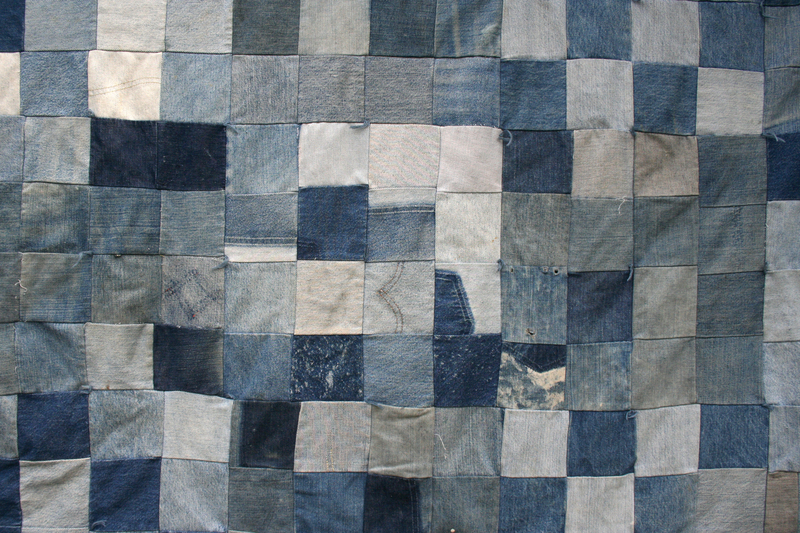Affordable Ways to Get Rid of Bulky Waste Items
Getting rid of bulky waste items can seem daunting and expensive for many households and businesses. With environmental concerns on the rise and landfill space shrinking, disposing of large waste items responsibly and economically is more important than ever. In this comprehensive guide, we'll explore affordable ways to get rid of bulky waste items while highlighting eco-friendly practices and money-saving tips.
What Qualifies as Bulky Waste?
Bulky waste refers to items that are too large or heavy for regular waste collection. Common examples include:
- Old furniture (sofas, mattresses, tables, chairs)
- Large appliances (refrigerators, washing machines, stoves)
- Home improvement debris (carpets, bathtubs, sinks)
- Outdoor equipment (lawnmowers, grills, bikes)
Disposing of these items incorrectly can lead to fines or environmental harm. Thankfully, there are affordable and responsible ways to dispose of bulky items that won't break the bank.

Why Proper Bulky Waste Disposal Matters
Improper disposal of bulky waste items can create significant problems:
- Environmental Harm: Bulky items in landfills can release hazardous substances.
- Illegal Dumping Fines: Dumping items illegally may result in hefty fines or penalties.
- Waste of Resources: Many bulky items can be recycled, reused, or repurposed, saving resources and energy.
Affordable Bulky Waste Disposal Methods
1. Utilize Local Curbside Collection Services
Many municipalities offer bulky waste pickup services as an extension of regular trash collection. These services are often surprisingly affordable or even free for residents, depending on your location.
- Check your local government website for scheduled bulky waste collection days.
- Most services require you to place items at the curb in advance or book a pick-up online.
- If free collection isn't available, inquire about minimal service fees or special collection events.
Tip: Prepare and separate your waste to make the process smoother. Some services only accept certain items or charge extra for electronics and hazardous materials.
2. Donate Usable Items to Charities
One of the most cost-effective ways to get rid of bulky waste is to donate usable items. Many organizations accept furniture, appliances, and building materials in good condition.
- Charity thrift stores (e.g., Goodwill, Salvation Army, Habitat for Humanity ReStores)
- Local shelters and outreach programs
- Nonprofit organizations focused on housing or refugee assistance
Some charities even offer free pickup services, saving you time and money. Donations also provide an opportunity to help your community and may qualify you for a tax deduction.
3. Sell or Give Away Bulky Items Online
Websites and social media platforms have made it easier than ever to rehome large items for free or at a low cost:
- Online marketplaces: Facebook Marketplace, Craigslist, OfferUp
- Community groups: Local "Buy Nothing" or Freecycle groups
List your items as "free for pickup" to attract people who will pick up directly from your home, reducing both cost and hassle. For items with resale value, selling online helps recoup some costs.
4. Take Advantage of Bulky Waste Drop-Off Centers
Most regions have drop-off centers or authorized landfill sites for large waste disposal. Fees are generally low, especially if you have proof of residency.
- Bring your own transport for maximum savings.
- Check for special events or annual "free dump days."
- Some centers have specific bins for recyclable bulky items, reducing landfill waste and costs.
5. Ask Your Waste Collection Company About Special Rates
Commercial waste collectors may offer affordable options for homeowners who don't qualify for municipal services:
- Request a quote for a one-time bulky item pickup.
- Ask about discounts for multiple items or shared pickups in your neighborhood.
Comparison shopping among local disposal companies can often yield lower rates.
6. Recycle or Upcycle Bulky Items
Recycling isn't just for cans and bottles. Many bulky waste items can be recycled or upcycled into new products or projects.
- Scrap metal yards accept old appliances, bikes, and bed frames--sometimes paying you for the metal.
- Electronic waste (e-waste) centers responsibly recycle large gadgets like TVs and computers.
- DIY upcycling: Turn old doors into tables or crates into shelving.
Not only are these methods cost-effective, but they also minimize environmental impact.
Other Cheap & Creative Ways to Dispose of Bulky Waste
Organize a Yard or Garage Sale
Why not turn unwanted items into a little extra cash? Garage sales are a simple way to let your neighbors know you're parting with large furniture, appliances, and odd items. Items that don't sell can then be donated or recycled, reducing disposal costs.
Combine Efforts with Friends or Neighbors
If several homes in your area have large waste to dispose of, share the cost of renting a dumpster or booking a single collection. Bulk rates are always cheaper, and you foster community spirit in the process.
Engage with Local Handymen or Scrap Collectors
Many local handymen or independent collectors are willing to pick up and repurpose large items. Some will do so for free, especially if there's resale value in the materials.
Community Clean-Up Days
Check if your city or town hosts annual or monthly community waste collection events. These are excellent opportunities to dispose of bulky waste items inexpensively or at no cost.
Rent a Cheap Pickup or Trailer
If you have a lot of waste or large pieces, renting a pickup truck or trailer for a few hours is a cost-effective solution. Share the cost with friends or neighbors for even more savings.
What to Avoid When Disposing of Bulky Items
- Don't dump illegally. Always use authorized channels to avoid fines and environmental harm.
- Avoid burning bulky waste. It's often unsafe and illegal, especially for treated wood or plastics.
- Don't ignore local rules. Some items (like mattresses or refrigerators) have specific disposal requirements to prevent pollution.
- Be cautious with hazardous materials: Electronics, appliances with refrigerant, and batteries may require special handling.
Tips to Minimize Bulky Waste in the Future
- Buy quality, not quantity. Invest in durable furniture and appliances.
- Reuse and repair. Fix items before replacing them, or get creative with repurposing.
- Rent or borrow big equipment for one-time projects to avoid future disposal challenges.
- Plan ahead. Before buying new, consider the full lifecycle and recycling options of bulky items.

Frequently Asked Questions About Affordable Bulky Waste Disposal
Does my city offer free bulky item pickup?
Many cities provide a limited number of free bulky waste collection days. Visit your city or county waste management website for details. If free services are unavailable, inquire about affordable options or special programs for seniors or low-income households.
What if my bulky item is broken or unusable?
If your item isn't in reusable condition, recycling is often the next best choice. Many recycling centers accept metal and wood. For completely non-recyclable items, affordable disposal at a landfill or through municipal collection is still better than dumping illegally.
Can I leave bulky waste on the curb any time?
Generally, bulky items must be scheduled for pickup, and unapproved curbside dumping may result in fines. Always follow your local ordinances and scheduled collection times.
Conclusion: Choose the Most Affordable & Responsible Option
There are plenty of affordable ways to dispose of large waste items without harming the environment or risking fines. From scheduled curbside pickups and charity donations to recycling and upcycling, you can clear your space and your conscience without breaking the bank.
Remember, some of the best and most budget-friendly solutions for bulky waste disposal also carry environmental or social benefits. Plan ahead, explore all your options, and share resources with your community to make disposal easy, cheap, and sustainable.
Ready to Declutter?
Start by reviewing your local options and listing bulky waste items for donation or sale. Don't forget to ask neighbors about sharing costs or resources. With a bit of planning, you can get rid of bulky waste affordably--and maybe even make a little extra cash or help someone in need!
